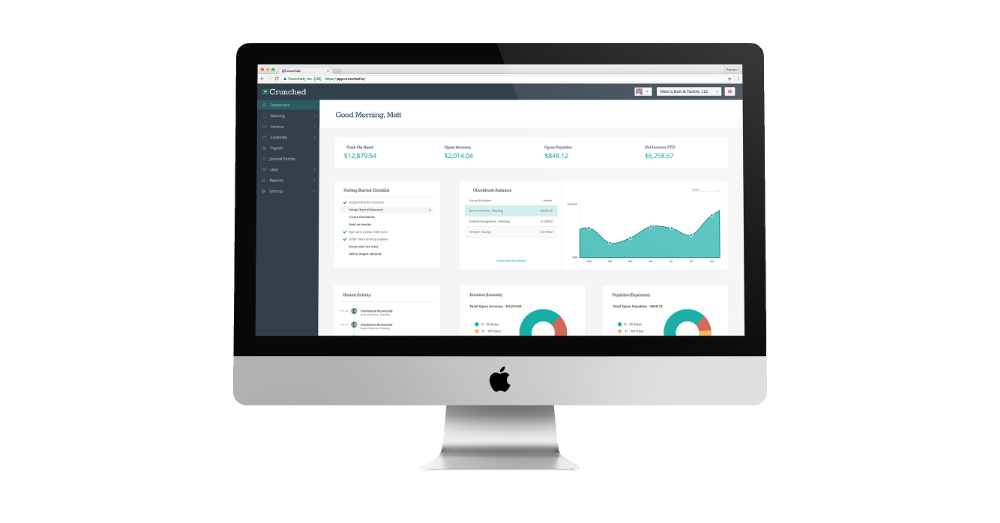How You Know It's Time To Hire A Bookkeeper
By Matt Reims
If your business is lucky enough to have positive cash flow and you’re experiencing growth, it may be a smart business move to hire someone to help you run the business. Oftentimes, one of the first things that small business owners look for help with is management of finance and accounting tasks. Bookkeepers can be valuable hires in the early stages of growth, but how do you know when it’s the right time to hire a bookkeeper? Here’s how:
When It Becomes Less Expensive to Hire Bookkeeper
Small business owners often work long hours as a result of managing multiple departments and responsibilities. At some point, however, it no longer makes financial sense to continue handling certain tasks on your own. Bookkeeping is a good example. To help determine if it would be cheaper to hire a bookkeeper, just break down your salary to an hourly rate. Then compare that rate to what you would pay a bookkeeper. Oftentimes, it will make more financial sense to outsource the financial management. For most small business owners, bringing in accounting help is a welcome change.
If you’re considering hiring a bookkeeper, you likely don’t need to bring someone on full time. Depending on the size of your business, you may need someone for only a few hours per week. Typical responsibilities of a bookkeeper include monitoring and posting your credits and debits, sending and keeping up with invoices, and maintaining the company’s general ledger, among others.
You’re Behind on Your Finances
Managing the finances of a small business typically requires attention on a monthly basis, at the very least. To help keep your business in sound financial shape, you’ll be managing certain accounting tasks on a weekly and even daily basis, ideally. Check out our accounting checklist to learn more. When you’re not able to dedicate the time to pay invoices, monitor cash flow, reconcile your accounts, etc., it’s probably time to hire a bookkeeper.
Letting these critical financial functions get away from you can lead to real problems. Not sending out invoices in a timely manner will affect your cash flow. And not understanding your cash position can lead to spending more than you have, which, when done consistently, can really lead to trouble. If you’re too busy to manage these tasks, it’s time to bring in some help.
You’re Making Accounting Errors
Typically, small business owners are not interested in managing the financial side of a business; it’s done only because it needs to be done. As an entrepreneur, you likely want to build and create. Accounting is tedious, and the tasks are repetitive. It can be easy to make errors when you’re not interested and engaged in a task. If errors are occurring, it’s probably a good idea to bring in a bookkeeper experienced in managing small business accounting. This way, you can focus on parts of the business that you’re passionate about. Having someone in place to handle the books will be a relief.
You’re Missing Growth Opportunities
Managing the books is not just about getting invoices paid and monitoring cash flow. Experienced bookkeepers understand how to identify opportunities for your business to grow. Here are a few:
- Bookkeepers can help identify ways to eliminate or replace unnecessary or costly expenses.
- They may be able to look closely at your numbers and identify opportunities to increase prices.
- They have the knowledge to identify lending opportunities that can help support growth.
- When your finances are in order, your business will be in a better position to get a loan. Lending institutions will look for financial records to support your ability to pay them back.
- Understanding how to pay the correct amount of taxes on a regular basis will help you avoid overpayment. When you don’t overpay, you’ll have more cash on hand that can be put into the growth of your business.
Making the decision to hire someone can be hard. You’re giving up control and adding a considerable expense to the bottom line. If you’re experiencing any of the above issues, however, hiring a bookkeeper is likely a smart move. When you go to make the hire, take your time with it. Managing the books requires someone with small business accounting experience. It’s also important to find someone who fits the culture of your organization. Once you have someone on board, it will likely be a great load off your shoulders.


